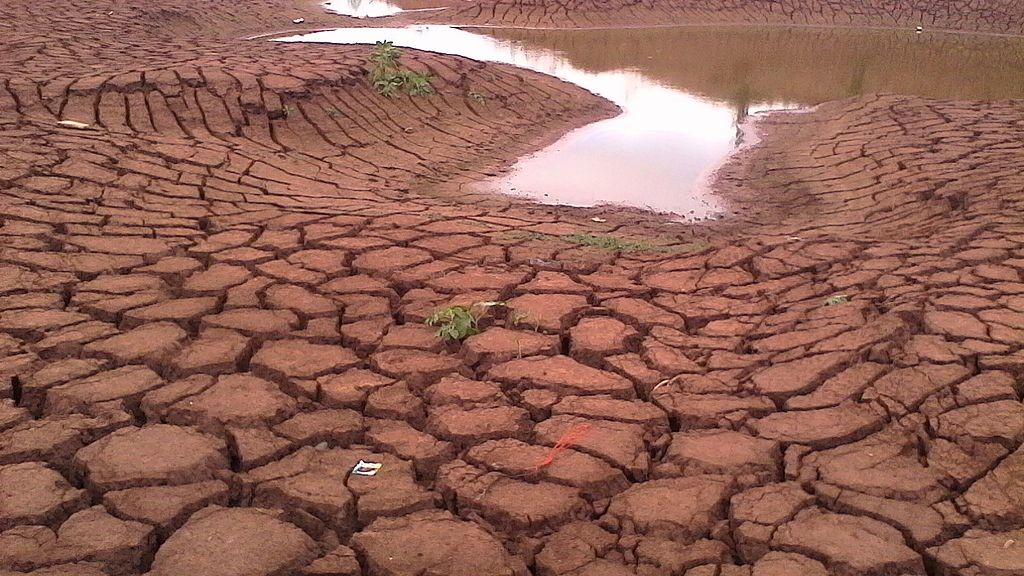

Why Morocco needs water management training
22 March 2023 Charles Arthur

Morocco is experiencing its worst drought in over three decades. The country’s limited freshwater resources are under pressure from population growth, industrialization, urbanization and climate change.
Nizar Baraka, the country’s minister of equipment and water, recently said that the water crisis has been worsening over recent years, and revealed that that 2022 was the driest year on record since 1945.
To increase the availability of water for household and industrial consumption and for irrigation, the government plans to construct new water treatment plants. These will include plants to recycle wastewater and at least 20 new seawater desalination plants. (See: Minister Announces Roadmap for ‘Guaranteeing Water Stability’ in Morocco)
The water crisis and the plans to resolve it underline Morocco’s need for water management specialists trained in the use and application of modern technology. The H2O Maghreb project addressed exactly this need.
The project, which ran over five years since 2017, introduced improved water and waste water management practices in Morocco through the transfer of knowledge and modern technologies. One series of training course over six months was for young graduates while a shorter course targeted existing water sector professionals.

The project, implemented by the United Nations Industrial Development Organization (UNIDO) and funded by USAID, brought together public and private sector entities to provide innovative training and equipment.
German company Festo Didactic, in cooperation with the National Office of Electricity and Water (ONEE), developed training modules that combined elements from different professions, including mechanics, electronics, hydraulics and chemistry.
The US company, EON Reality, provided a virtual reality simulation that allowed students to experience what it would be like to navigate and troubleshoot difficult circumstances that could arise while working in a wastewater treatment plant. The virtual reality technology allowed students to develop a better understanding of the wastewater management plant through an experiential learning process, allowing them to make mistakes and learn from the challenges that emerged.

“The H2O Maghreb training managed to combine both theory and operational aspects in a balanced way. It allowed me not only to consolidate and strengthen my knowledge of water and wastewater, but also to reinforce my passion for this fascinating field,” says Imane Benomar.
Benomar is one of 112 young Moroccans, 85 of them women, who completed the five-month training course provided by the H20 Maghreb project.
“This experience was very enriching and will certainly help me excel throughout my professional career…and contribute to better water management for sustainable development!"

The H2O Maghreb project actively recruited female trainees. The provision of safe accommodation and meals at the training hub set up at the International Institute of Water and Wastewater in Rabat made it possible for young people from all regions of the country to participate in the training, and may have been the deciding factor for young women considering participation.
Ultimately, however, the predominance of young women among the trainees reflected their performance in the entrance exams, notes USAID project manager Salma Kadiri. “There were some actions that encouraged female participation,” she says, “But also the transparency and open competition of the hiring process for H2O Maghreb helped to select the best candidates, which happened to be women.”

Saadia Lagrani is one of the 20 trainers who received training to share knowledge and expertise on state-of-the-art water management with the 112 students and a total of 164 existing water professionals.
At the beginning of her career, Lagrani was one of the few women working in this sector in Morocco. “During work meetings, I was always the only woman at the table,” she remembers. “When I joined the National Office of Electricity and Water, a female water network technician didn’t exist; it was a job for men. It is a real revolution.”
Two-thirds of those young people who completed the H20 Maghreb course have found employment or are in internships. Lagrani is proud that many of the women who graduated from H20 Maghreb are now her colleagues helping to overcome the country’s water shortage.